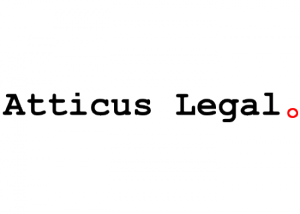SELLING A BUSINESS. TOP 10 LEGAL TIPS FOR A SUCCESSFUL SALE. Conveniently packaged by Atticus Legal, Extraordinarily Clever Business Lawyers Hamilton
There are 10 main things to consider in the process of selling a business, and more depending on the type of business. They are:
- Pre-marketing & pre-contract ‘audit’ and preparation of the business for sale.
- Maximising the profitability of the business and ‘normalising’ the business accounts.
- Documenting key contracts (including leases), ensuring they are assignable and optimising their terms (if possible).
- Recording and documenting important business processes.
- Valuing the business so you can determine a realistic sale price and an optimal apportionment of the price.
- Reviewing employment contracts – is a severance amount payable for redundancy and what is the likely amount to be paid for accrued leave?
- Appointing a good business broker (with experience in your industry) to market the business & working with them to prepare disclosure documentation for interested buyers.
- Sale contract conditions – due diligence, key contracts, key personnel, lease assignment, product warranties, etc.
- Restraint of trade on the seller company & its shareholders and directors.
- Prepare for securities to be discharged on settlement (including releases of guarantees).
All of the above factors are important when selling a business. But this article comments on the first 5 only. The rest are more or less self-explanatory.
Call Atticus Legal now if you want to know more about selling a business, or buying a business for that matter. We’ve assisted many clients buying and selling businesses over the last 25 years. We know these inside-out. Our expertise and experience can really add value when selling a business.
-
Pre-marketing & pre-contract ‘audit’ and preparation of the business for sale
You can see from the above list that there is a lot of emphasis on work to be done before marketing the business for sale. It can pay dividends in terms of maximising the number of interested buyers and the price you achieve. It can also help, when you have a sale contract in place, in smoothing out the purchaser’s due diligence investigations and avoiding the purchaser coming across unpalatable ‘surprises’.
Planning for selling a business may start up to a year or more before you start marketing the business for sale. It’s about getting the business into good shape for sale and that can take time. It’s not just about presentation. Buyers will look deeper than that when they carry out their due diligence assessment.
When selling a business, and planning for that, we recommend that you first put your business through an ‘audit’ process. And that in doing so you try to anticipate what a buyer’s due diligence investigation will focus on. Following are examples of what an audit process for your business might include:
- Examining your accounts and financial records, with your accountant, to ensure they are up to date and are an accurate reflection of the financial performance of the business – eg. remove personal debt or personal expenditure (if any) and ensure the accounts reflect GAAP (generally accepted accounting practice). If you have monthly management accounts & cash flow statements make sure these are up to date as well. All of these are likely to be disclosed to intending buyers as part of marketing the business for sale.
- Ensure that your lease and other key contracts are up to date and properly documented. Remember you have to be able to assign these to a purchaser of the business.
- Ensure all necessary consents and licences for the business are in place (and are assignable).
- Update your business plan (or put a proper business plan in place, if you haven’t already). A well thought out business plan based on sound assumptions will be attractive to a buyer.
- Consider the fixed assets of the business – do any need repair or renewal? Are there any that a buyer won’t want and should be sold?
- Consider your staffing levels – are they too low or too high?
2. Maximising the profitability of the business and ‘normalising’ the business accounts
As mentioned above you should, with your accountant, make any adjustments to your accounts required to normalise them. For example, ensure they don’t include personal expenses but also that they make it clear if there have been ‘extraordinary’ items (eg arising from a large asset sale). In addition, if the accounts cover more than one business or more than one branch (and you are not selling them all) then have them amended to provide for divisional or segmental reporting, if they are not already.
Ask your accountant what you might be able to do to increase bottom-line profit and thereby make the business more attractive for sale. For example, what about reducing stock levels if your inventory is too high or dealing with bad or doubtful debts or reducing any credit terms to your customers (eg. changing from 20th of the following month to 14 days after date of invoice). Is there room to reduce unnecessary expenses or variable costs? If you are involved in an expensive longer term investment project consider putting it on hold to increase current profits.
3. Documenting key contracts (including leases), ensuring they are assignable and optimising their terms (if possible)
Some contracts are vital to the business and are therefore often called ‘key contracts’. The lease of business premises is obviously one. But there may be others depending on the business – eg. contracts with key suppliers (eg. a franchise or an exclusive distribution or agency arrangement), a licence to use important intellectual property and perhaps key contracts with customers. You need to ensure that all of these are properly documented and up-to-date. And that they are assignable. If you can’t transfer them to a purchaser then they are no good to the purchaser. Making sure they are assignable is something you should do well before marketing your business for sale. Getting them changed or re-documented may take time.
In some cases you might consider trying to change key contracts to make them more attractive to a purchaser of your business. For example, if there are only a few years left to run on your lease and no further renewal rights, you might ask the landlord to agree further rights of renewal to make the lease more attractive to a purchaser of the business. The same could be said where your business has the benefit of a franchise or an exclusive distribution or agency arrangement. But in the case of a franchise, if you ask for more renewal rights you’ll probably have to pay for the privilege and you may therefore want to leave that for the purchaser.
4. Recording and documenting important business processes
As noted above, a good business plan can impress an intending buyer of the business, even if you haven’t really followed it. Also impressive to a buyer are well documented business processes and systems. Businesses and business profits sometimes suffer from inefficiencies. If you can accurately record and improve upon your existing systems you may improve business profitability in the count-down to eventual sale of the business.
And you will also have something hopefully impressive to hand to an intending buyer. It may help give them confidence that they will be able to take over and run the business seamlessly, rather than ‘flying blind’.
Scheduling various critical dates for the business can also be helpful to an intending buyer – eg. due dates for renewal of any resource consent, lease renewal, franchise renewal, fixed asset maintenance, liquor licence renewal, etc. Sure, you don’t want to do the buyer’s job for them, but making it easier for a buyer may well help you clinch the sale.
5. Valuing the business so you can determine a realistic sale price and an optimal apportionment of the price
Ultimately, the business is only worth what someone is willing to pay for it. But you don’t want to market it at a price which is too high or too low. You therefore need to know what the business is worth so you can price it appropriately for marketing. Your business broker can help here but you should also have your accountant make an assessment of a fair price for the business. When a buyer conducts their due diligence they will almost certainly have their accountant do a similar assessment.
An assessment of fair value by an accountant is usually based on future earnings potential. Sometimes sellers base the asking price on a multiplier of earnings before interest and tax (EBIT) or just a multiplier of annual profit. If it is based on an EBIT multiplier or similar, is there an ‘industry norm’ to compare it to? Comparable sales prices for nearby similar businesses may not help much because businesses can vary greatly in profitability.
The apportionment of the price when selling a business has consequences for the seller (goodwill is usually ‘capital’ and therefore not taxable) and for the purchaser (tax deductibility and depreciation). Usually the issue is the apportionment of the price between goodwill and the price for tangible assets (plant & equipment and stock). You should take advice from your accountant on this so that you can instruct your broker how you want the price apportioned in a sale contract.
And of course GST needs to be considered. If both the seller and buyer are GST registered (as they almost always are) the business sale will usually be GST zero-rated. You need to have your lawyer check this aspect before you sign the sale contract.
Selling a business is a big step. There’s a lot to do before you even come close to signing a sale contract. You should ensure you have great legal advice from the outset. Call Atticus Legal, Hamilton’s supremo business lawyers.
WANT TO KNOW MORE? Just ask Atticus Legal, Wizard-like Business Lawyers Hamilton & Company Lawyers Hamilton
CALL ANDREW SMITH, the owner of Atticus Legal, for expert professional advice on any of the matters referred to in this information sheet.
TO RECEIVE FURTHER INFORMATION SHEETS FROM ATTICUS LEGAL please ‘like us’ on Facebook to ensure you receive our future posts.
Lawyers Hamilton, Business Lawyers Hamilton
11 Garden Place (Level 7), HAMILTON
Ph: (07) 839 4558, Fax: (07) 839 4559, Mob: 021 508 189
Email: andrew@atticuslegal.co.nz
SEE OUR WEBSITE: www.atticuslegal.co.nz
Disclaimer: The information contained in this information sheet is, of necessity, of a general nature only. It should not be relied upon without appropriate legal advice specific to your particular circumstances.
This information sheet is copyright ©Atticus Legal, September 2016



